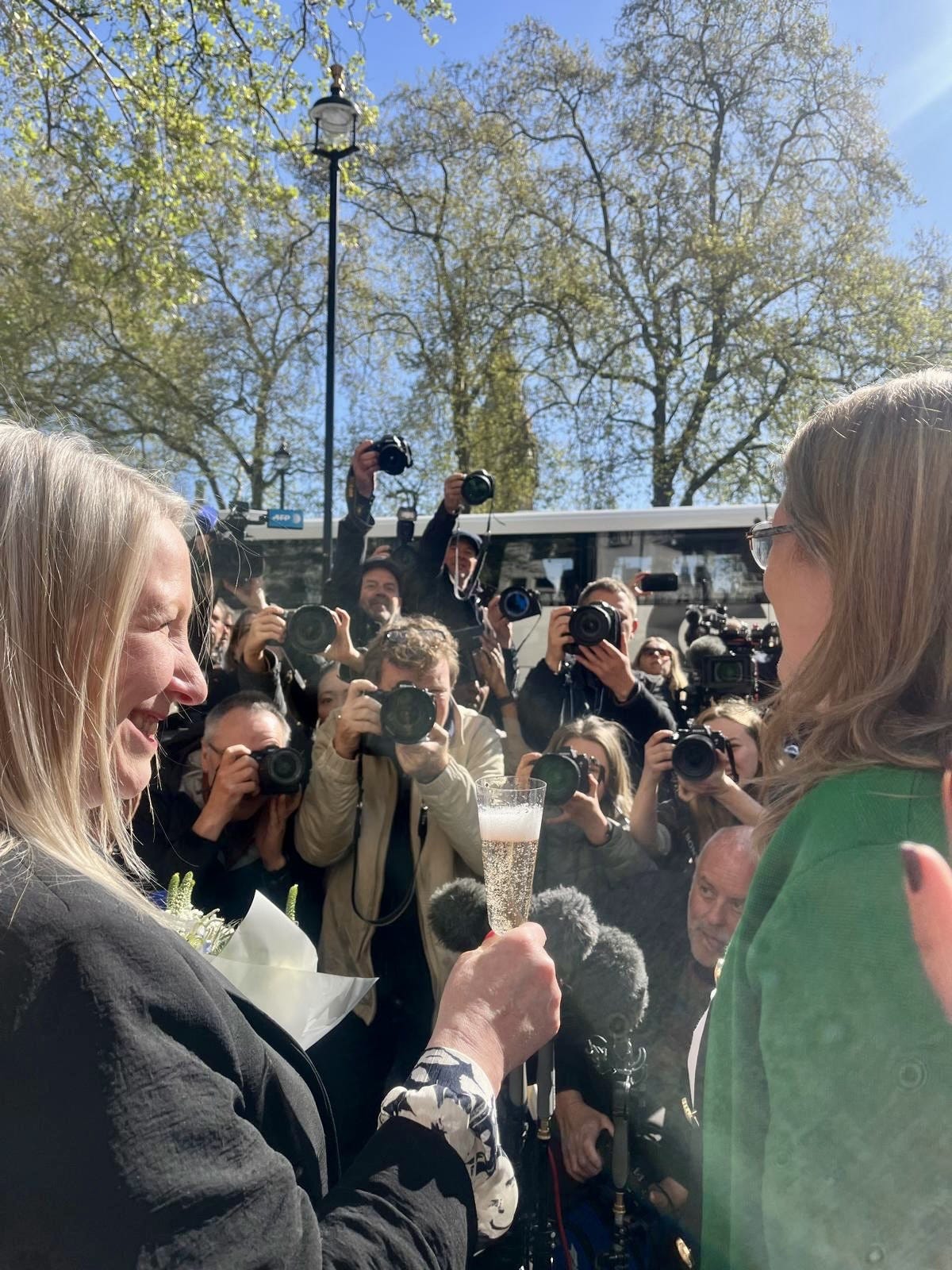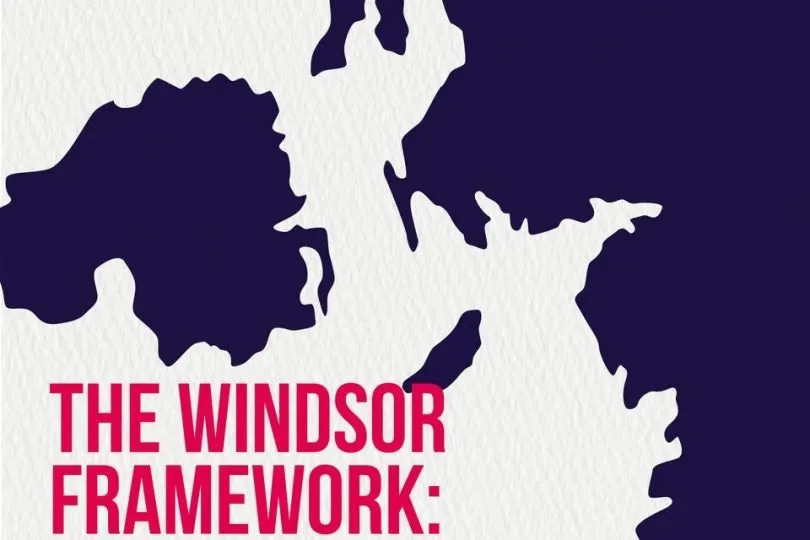When a Trade Deal Redefines 'Woman'
Why Northern Irish Women Are Still Waiting for Legal Clarity
In April 2024, the UK Supreme Court gave long-overdue clarity: under the Equality Act, the word "woman" means biological female. The ruling came after a legal challenge by the group For Women Scotland, which had opposed the inclusion of male-born people with gender recognition certificates (GRCs) in the legal definition of “woman” for the purposes of public boards and representation quotas. The court found that redefining "woman" in this way was incompatible with the Equality Act 2010. It was a calm, careful and decisive ruling, one that should have settled the issue not just in law, but in practice.

But in Northern Ireland, that clarity has been shelved.
The Equality Commission for Northern Ireland (ECNI) has today refused to issue updated guidance following the ruling. Instead, it has cast doubt on what terms like "woman," "man," and even "sex" might mean in our legal context. The reason? A trade deal.
The Windsor Framework, signed after Brexit, includes Article 2, which obliges Northern Ireland to keep in step with certain EU equality laws. The Commission now says this may prevent them from applying the Supreme Court ruling here. So instead of clarity, we have delay. Possibly for another year.
A Dangerous Vacuum
Rather than confirm the ruling applies in Northern Ireland, ECNI has deepened the confusion. Chief Commissioner Geraldine McGahey has openly admitted that if it weren’t for the Windsor Framework, the ruling would apply. Rather than accept the ruling as binding, ECNI is now asking the High Court to determine whether it can be applied here at all. In effect, a taxpayer-funded equality body is going to court to question whether the word “woman” means the same thing in Northern Ireland as it does in the rest of the UK. But because of EU obligations, the Commission wants the High Court to decide whether “sex” means something different in Northern Ireland than in the rest of the UK.
In today’s statement, McGahey claimed the situation is “much more nuanced and complicated” in Northern Ireland. She noted that various local laws refer to “sex,” “men,” and “women” without ever defining them clearly. The Commission’s position is that the law here may diverge from the rest of the UK, and that a domestic court must settle the matter.
That is a remarkable stance from a body meant to protect equality.
Women in Northern Ireland are now being told that their rights may depend not on biology or UK precedent, but on a post-Brexit trade protocol. That the word “woman” might mean one thing in Birmingham and something else in Belfast. That’s not nuance. That’s legal absurdity.
Real-World Impacts
This isn’t some niche legal quarrel. It has real-world consequences. Women’s refuges, hospital wards, rape crisis centres, sports teams, and changing rooms are all caught in the middle. Organisations don’t know whether they’re allowed to run female-only services, or if doing so will land them in legal trouble.
And let’s be clear: it’s the most vulnerable women who suffer. Women in prison. Women in psychiatric wards. Women fleeing violent men, seeking shelter in spaces where they can feel safe. These are the people the Equality Commission has failed to protect.
We’ve already seen what happens when institutions ignore sex. In England, male offenders with GRCs have been housed in women’s prisons, including violent offenders and those with histories of sexual assault. The Isla Bryson case in Scotland sparked outrage after a convicted rapist was initially placed in a women’s prison. These are not hypotheticals. These are cautionary tales.
Too often, this whole issue is reduced to toilets, as if it's just about where someone pees. But toilets are something everyone uses. This is about intimate, high-risk spaces where the presence of a male body, no matter how someone identifies, can retraumatise or endanger.
This is about fairness in sport. Privacy in healthcare. Boundaries in criminal justice. None of this is abstract. These are the daily realities of women who have nowhere else to turn.
And now, after months of silence, the Commission’s long-awaited statement has arrived, and said nothing. Instead of firm guidance, we get a "roadmap" of steps, with no timeframe and no certainty. Meanwhile, the legal limbo drags on.
The Pattern Is Familiar
This isn’t just about Northern Ireland. It fits a wider trend. Across the UK and beyond, institutions are using complexity and ambiguity as excuses for inaction, while women are left exposed.
In our case, a Brexit trade deal is being used to block a Supreme Court ruling. Brussels is being prioritised over Belfast. That’s not how democracy should work.
Across the UK, public bodies have been captured by ideology. The NHS talks about “people with cervixes.” Government departments still cling to Stonewall guidance that blurs the lines between sex and gender identity. In schools, young people are being taught that biology is bigotry. It’s the same pattern: obfuscate, delay, deny.
Can a UK-wide legal decision be ignored in one part of the country? Can the definition of “sex” be allowed to shift according to postcode? And if so, what does that mean for the rule of law?
This isn’t just a policy delay. It’s ideological capture, not just of language, but of the law itself.
What Needs to Happen
This can’t go on. The UK Government must make clear that the Supreme Court ruling applies in full to Northern Ireland. The Equality Commission must stop hiding behind EU obligations and start doing its job: defending women, not dodging responsibility.
This is no longer just a women’s rights issue; it is a constitutional crisis. If a UK Supreme Court ruling does not apply in Northern Ireland because of a trade deal, then the principle of equal citizenship across the UK is at risk. Are we still one country under one law? Or is Northern Ireland now subject to a parallel legal system where biological reality can be overridden by EU interpretation under Article 2 of the Windsor Framework? The UK Government must step in. This situation demands political leadership, not bureaucratic stalling.
If the Commission won’t act, then women’s rights organisations should seriously consider seeking a judicial review of its failure. Westminster should also provide an unambiguous statement confirming the legal interpretation of “woman” across all four nations of the UK.
Women in Northern Ireland are UK citizens. We are entitled to the same clarity, the same protections, and the same respect as every other woman in these islands.
The Supreme Court has already spoken. The definition of “woman” is not up for renegotiation. It’s time our institutions caught up.







